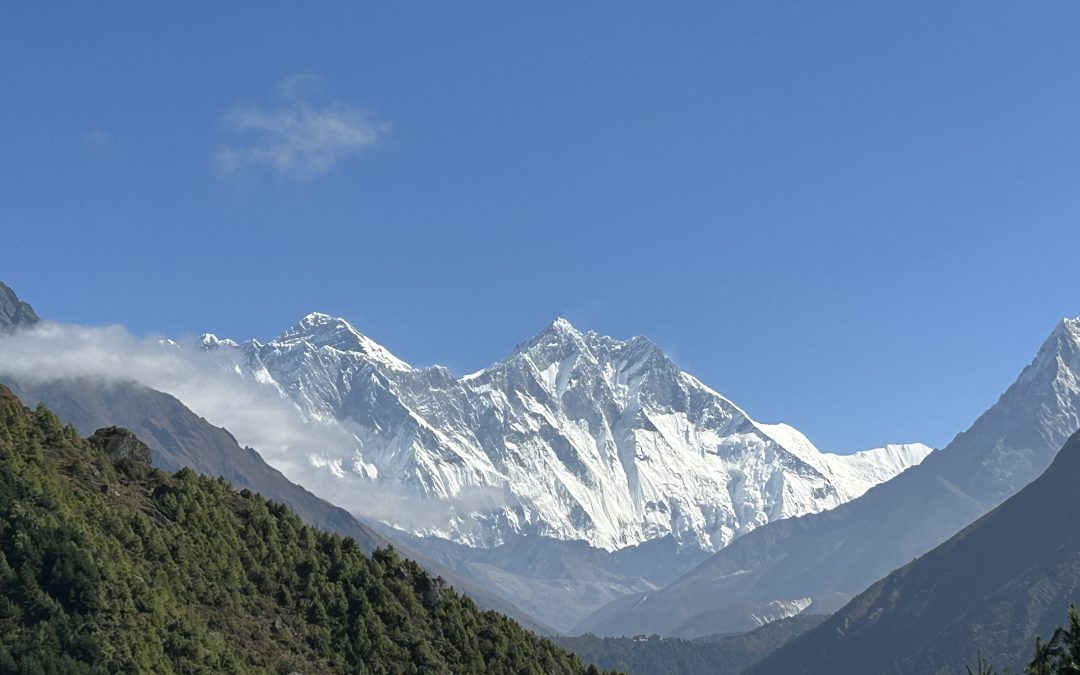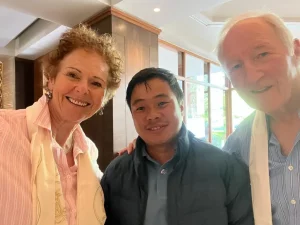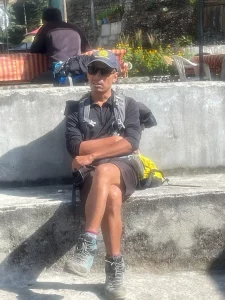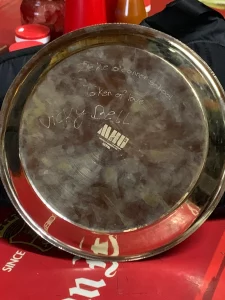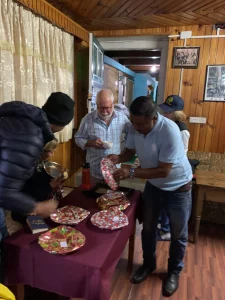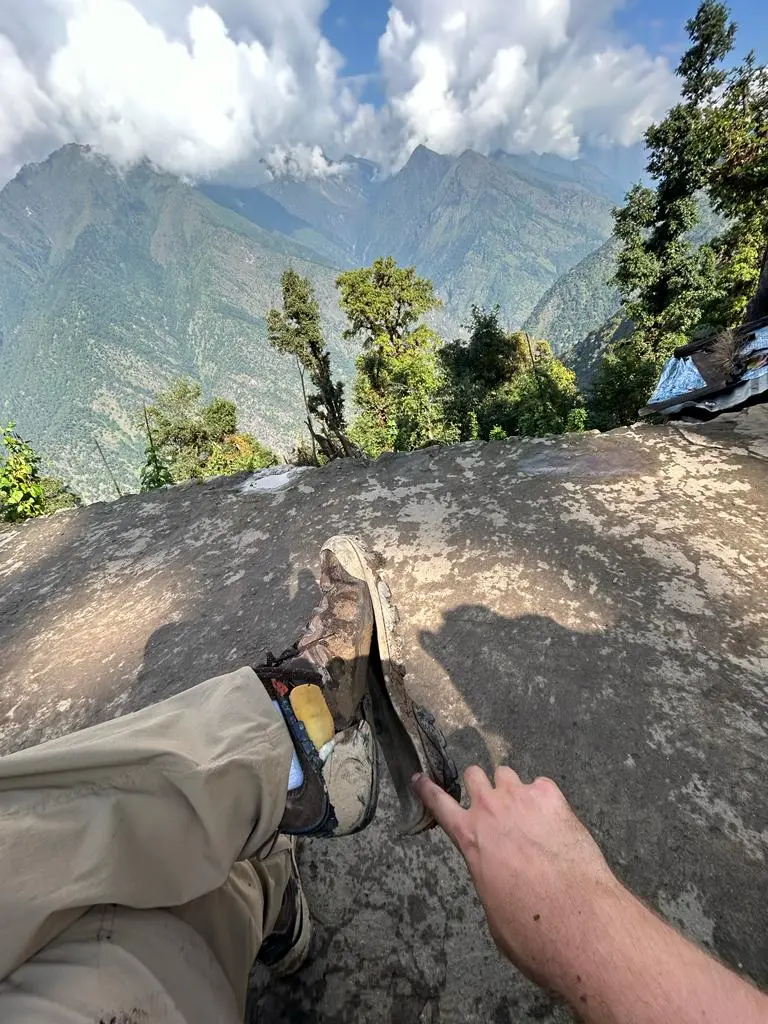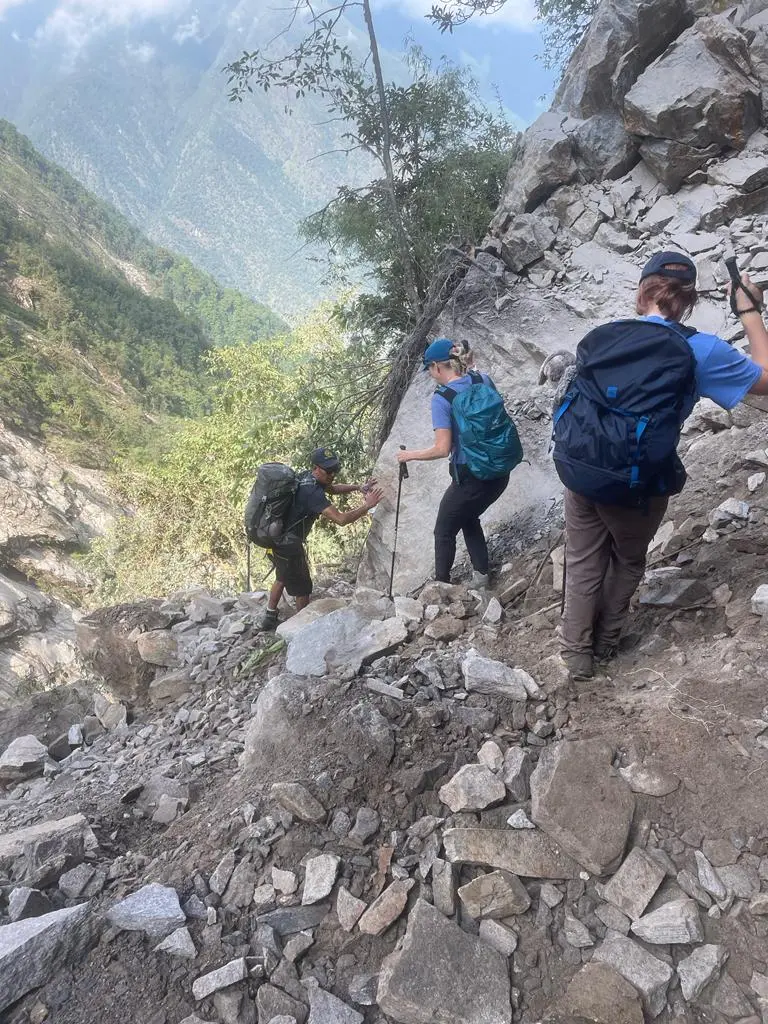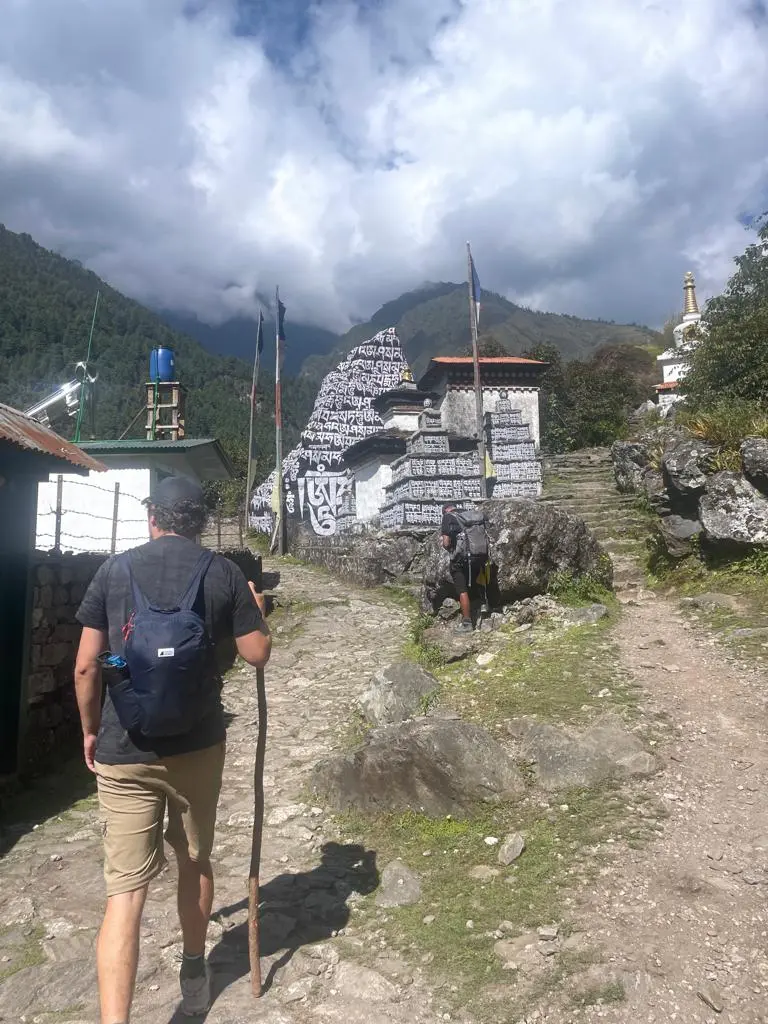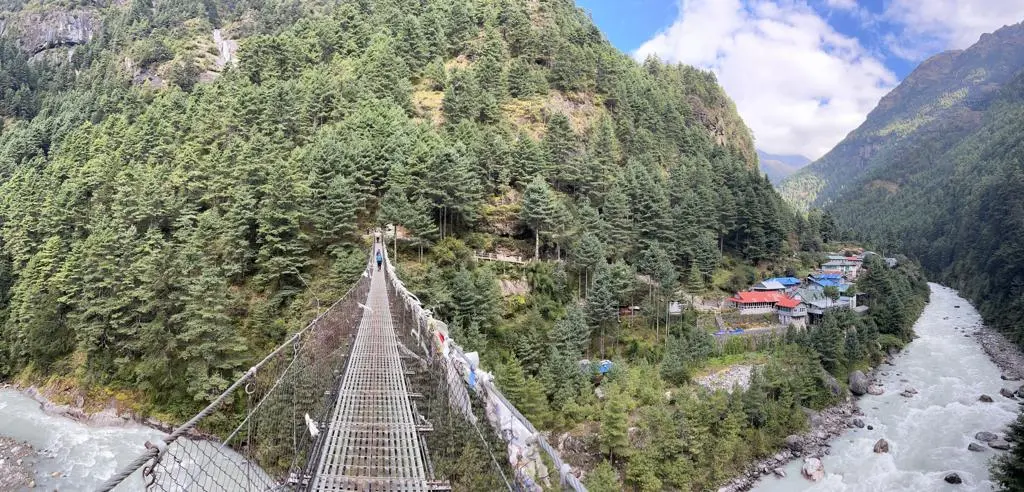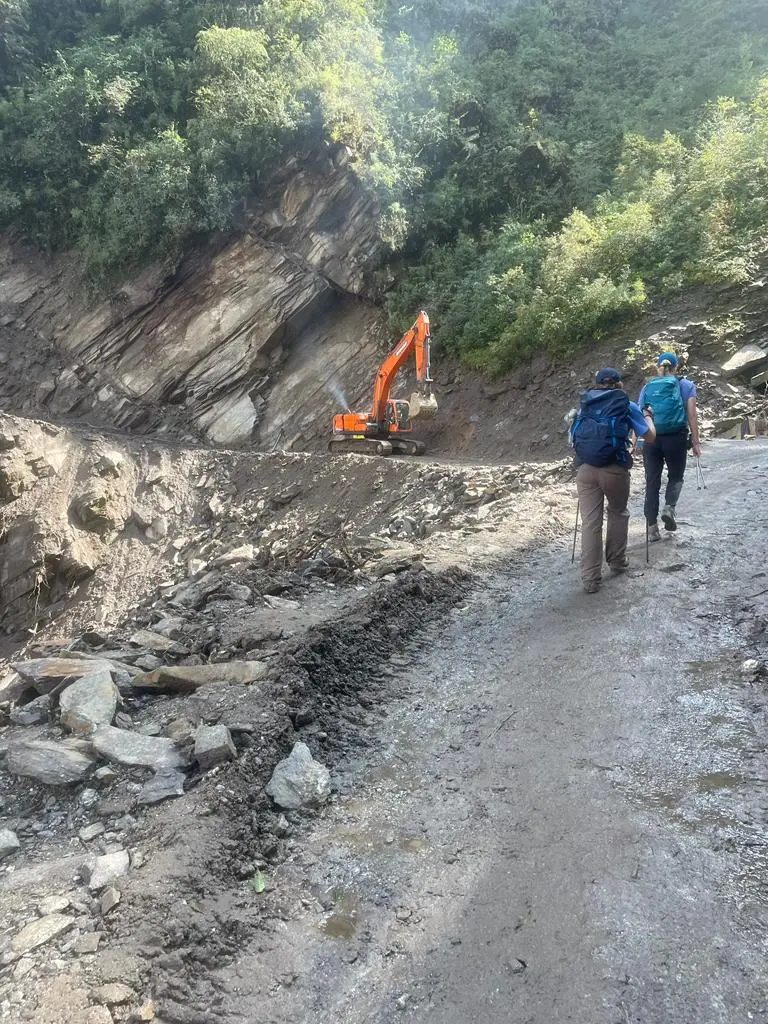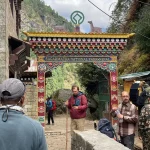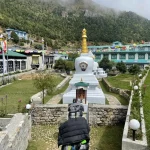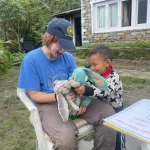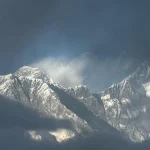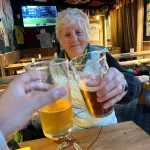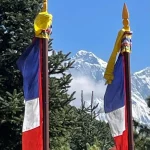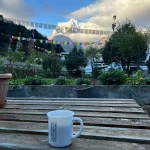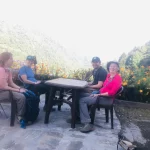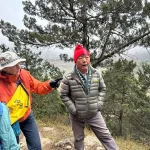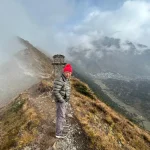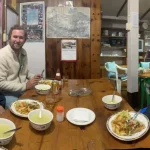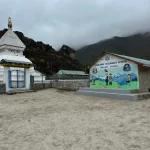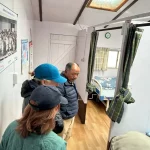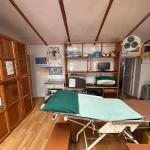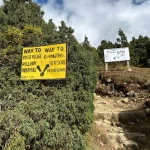On day 8, the group split into two. One half (the Kunde Crew: Justin, Virginia, Heather and Erica, under Bikash’s expert guidance) would be setting off to visit the Kunde Hospital, another of the Sir Edmund Hillary Foundation of Canada’s projects. The other half (the Kathmandu Crew: everyone else, with Subash to look after us!) would be heading back to the capital … and to reunite with Roy! (You may have noticed the distinct lack of Roy in our Phaplu pictures. Sadly, he came down with flu shortly after arriving in Kathmandu and never felt well enough to join us. We missed him, but were so grateful for him cheering us on back “home,” as well as for doing a ton of writing work before the trip!)
Our amazing World Expeditions guides:
- Subash (flanked by Susan and Rick),
- and Bikash, looking characteristically cucumber-cool
The group woke up on its final day in Phaplu with some trepidation: over the last several days, concern had been building about the weather. The rain and fog we’d experienced all week were preventing flights from travelling up to Lukla (where the Kunde Crew would start the next phase of their journey), and a log-jam of stranded trekkers and climbers had started to fill up Phaplu village, leading to a scramble for jeeps and helicopters — anything that could transport people up into or down from the mountains! Both crews of travellers were juggling several different scenarios for how to get to their next destination.
We were all up with our bags packed at 5:30 a.m., hoping we’d be able to catch our scheduled flights. But first: a goodbye visit from Principal Lhakpa and some of the Zeke O’Connor School staff, with a gift of a beautiful, personalized copper Nepalese plate for each of us. Oh, and more tears all round.
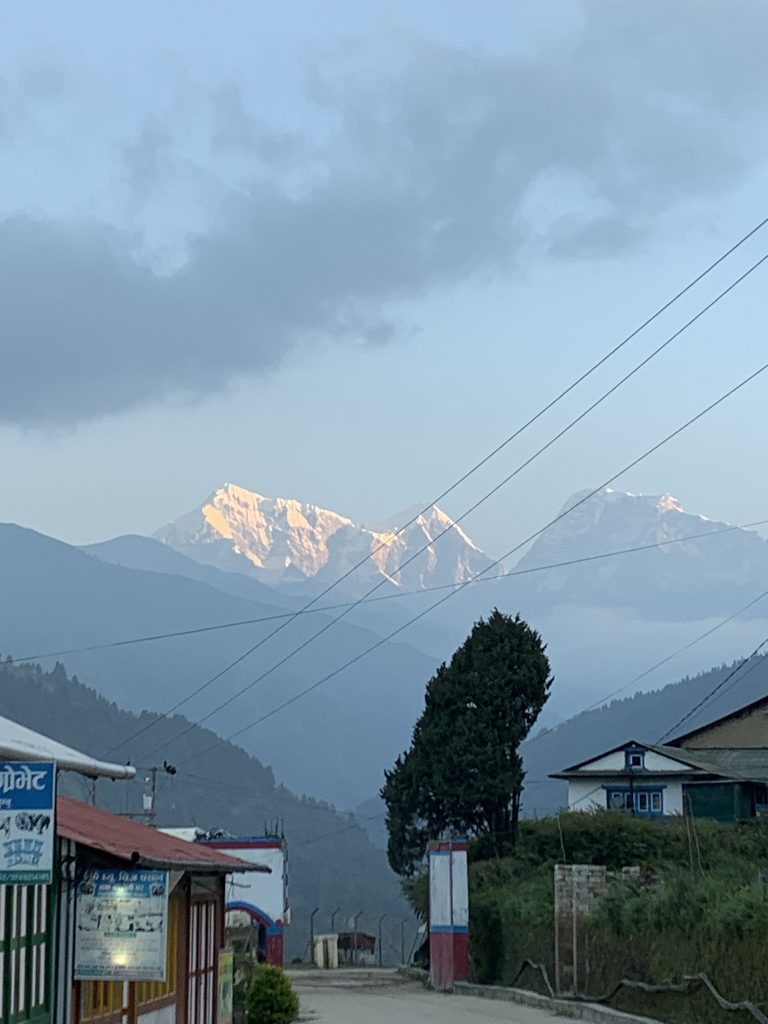
It had been so cloudy that some of us hadn’t previously realized that peaks were visible from Phaplu! Here’s a glimpse of the Numbur Range.
The Kathmandu Crew hustled down to the airstrip with duffels and daypacks and were rewarded by the arrival of a Tara Air flight at around 9 a.m. We were diverted to Ramechhap Airport and then took a 5-hour bus ride back to Kathmandu, rather than being able to fly directly to Kathmandu, as originally planned.
But we were lucky. The Kunde Crew had a much tougher time! More on that shortly…
The Kathmandu Crew split again over the next couple of days. Some headed home right away. But Susan, Rick, Shelagh and George went further south, to spend time at Chitwan National Park (an 18-minute flight, much preferable to another 5-hour drive!). They spent a very different few days from the time in Phaplu (the pics below from Shelagh Barrington show the diversity of Nepal’s scenery!). They took a nature walk down to the East Rapri River, through a local village surrounded by extensive rice fields; drifted by dugout canoe down the river, to look for crocodiles; watched a traditional Tharu stick dance; walked through regrowth jungle for glimpses of lovely fauna and over swaying but sturdy suspension walkways; found endangered Black Rhinos staying cool in the water … They saw many deer, birds and elephants out grazing, but noted that there is still a long way to go to reintroduce tigers and bears in sufficient numbers to be sustainable.
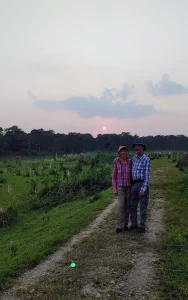
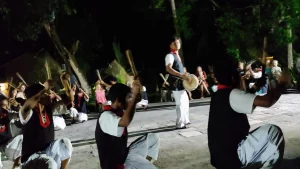
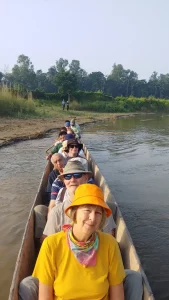
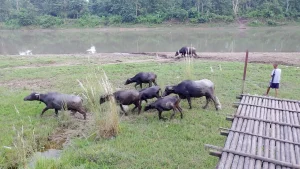
Meanwhile … back in Kathmandu …
Allison and Paul met up with the Pickleball Association of Nepal, to share the experience of bringing pickleball to the Zeke O’Connor School in Phaplu! The entire association board was there to give Allison and Paul a true warm Nepal welcome, and presented Allison with an award (“International Advisor of Nepal”! Not too shabby!). And of course they had to play an inter-nation game, too!
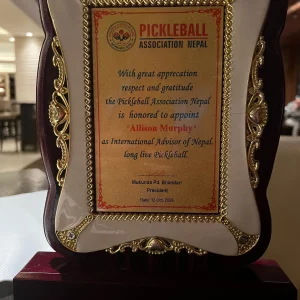
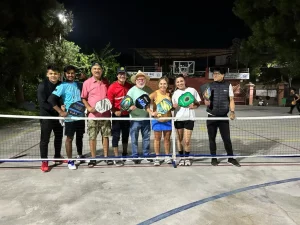
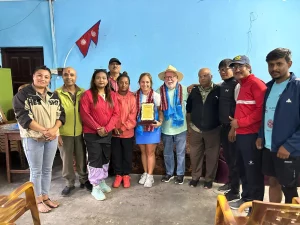
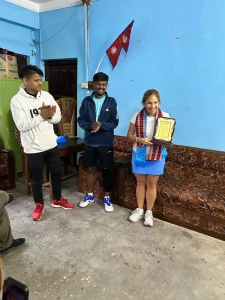
Meanwhile, up in the hills …
Back to the Kunde Crew: The Fearless Foursome (as Susan quickly dubbed them) couldn’t get a flight at all. They ended up taking a Jeep to get nearer to Lukla, then hiked up to Monjo, Namche Bazaar and finally Kunde. Virginia described the first stage as a brutal drive: a quagmire, with river crossings, very steep and rocky and narrow, with a clog of traffic (a truck lost a load of beer!). But their Jeep driver was an expert (pics: Virginia Elliott).
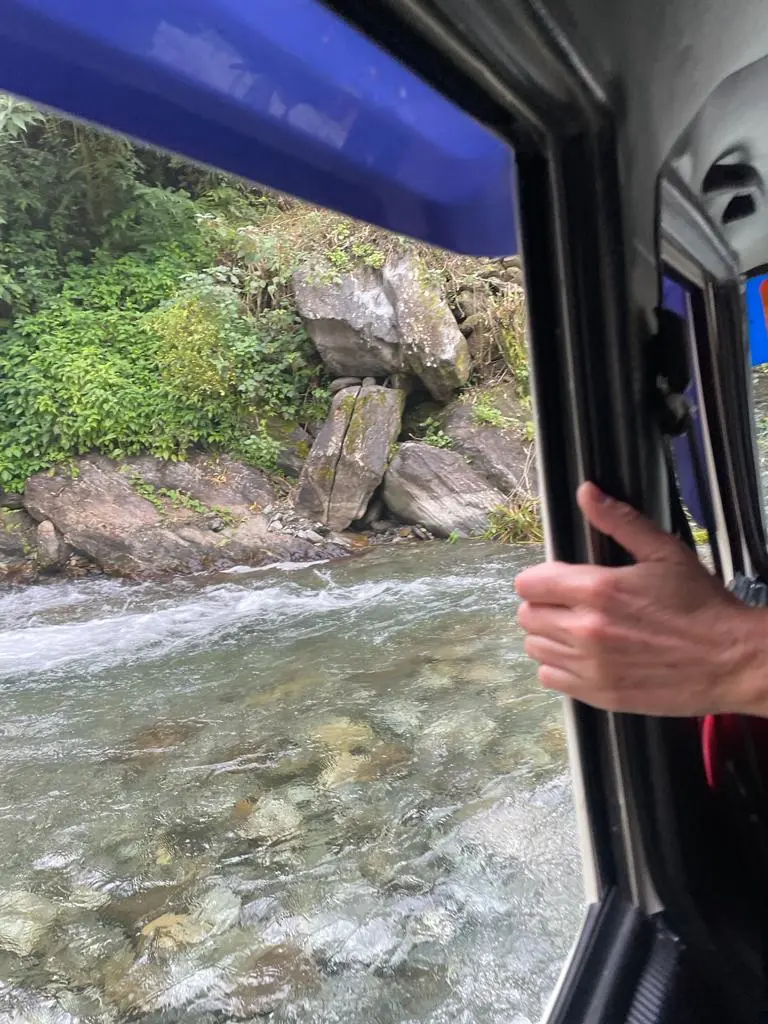
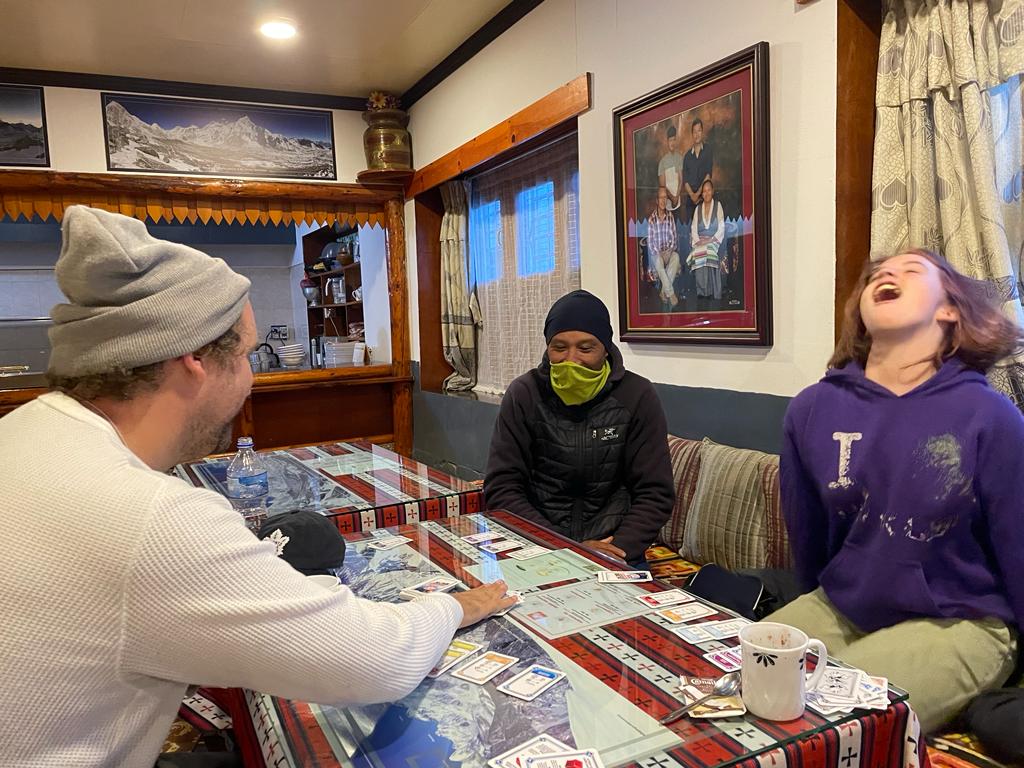
Justin, Bikash and Erica
The following day, they headed out at 7:30 a.m. along the new road that is being constructed to Lukla. To avoid the detonation blasts, they had to scramble down the rubble to pick up the old path, and from there walked until 5:30 p.m. to just past Lukla (they were chagrined to realize that the airport was now open — they could have flown, after all!). Justin’s hiking boots disintegrated about 3 hours into the trek, so he had to negotiate the trail in running shoes! (Cue a “shopping spree in Namche,” as Virginia put it!)
After Namche Bazaar, they set off to Kunde to visit the hospital, with a stop at the Khumjung School. Heather, a physician who spent several months working at the hospital 20 years ago, described the experience: “Returning to Kunde was amazing and also bittersweet. It is such a beautiful town, very quiet because it is off the main hiking route. It was wonderful to see the hospital, which has barely changed, and Dr. Kami is a gracious host. We did a ceremony to commemorate Zeke O’Connor, which was lovely.”
“However, you can’t step in the same river twice,” Heather continued. “The town and hospital are much quieter, as people take advantage of economic opportunities and move to Kathmandu or overseas. All three of Kami’s children have left. The Sherpa culture and language are disappearing. This is a consequence of economic development and I don’t think there is much to be done, but it is bittersweet.”
Virginia added: “Dr. Kami told us there have been no births at the hospital this year (compared with 32 last year). He explained that there are now several hospitals and clinics in the area (a good thing) and the catchment area is much smaller. There are seasonal labourers from ‘the lowlands’ coming into the area and Kunde has but 22 people who spend all winter.”
Despite the hardships of getting to the hospital and the poignancy of the visit, Virginia said she wouldn’t replace the experience for the world.
Thanks for sharing your adventures, Fearless Foursome.
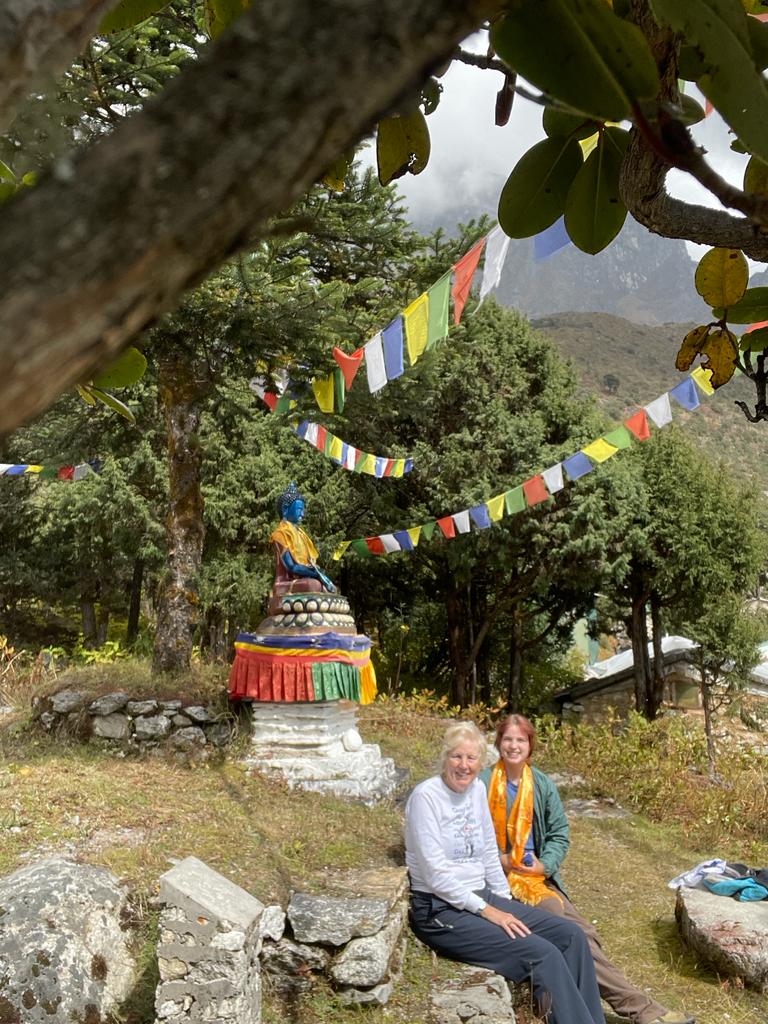
Virginia and Erica enjoying the tranquillity of the Zeke O’Connor Peace Garden before catching a helicopter back to Kathmandu.
As you’re reading this, all the travellers have returned safely to their homes in the US and Canada. We’re hanging on hard to the awakening that happened to all of us — the magical feeling, as Mary so beautifully put it — and trying to resist the tug of everyday business. And trying to harness it and use it as a call to action: where do we take this energy next?
In trying to process the experience, Allison spent time researching and writing in her journal, and agreed to share her thoughts here — they echo what many of us are feeling, and maybe they’ll resonate with you, too.
“Be the change you wish to see in the world” – Ghandi
My trip to Nepal was not a 2-week tourist vacation — rather, it was a cultural immersion with 12 other like-minded adventurers.
Adjectives that have swirled through my mind during and after the trip include “life–altering, transformative, intense, cathartic, unique, exhilarating, and overwhelming.”
It was not a trip for everyone, but afterward, I realized: cultural immersion feeds my soul. It offers a unique, one-of-a-kind way to immerse myself in my destination and provides the opportunity to dive into a culture, interact with locals, have experiences that provide perspective, and learn new practices and traditions, as well as make meaningful connections with people, making my world bigger and richer — which is critically important to me.
Creating the distance and time outside of my everyday world is also important to me. It allows me the mind-space to gain new and broader perspectives on big-world issues (i.e., religion, poverty), as well as provide a reminder that regardless of where we are geographically, we all have similar basic needs (health care, education, nutrition, environmental issues). The trip provided me with additional clarity on the fact that as humans, we have distinct similarities and a need for interconnectedness. Multiple times, I saw that when travellers and locals interacted about something they were passionate about, meaningful connections ensued. It crystallized my intuition that those connections are a catalyst for positive change, big or small.
Lastly, open-mindedness is something I believe that most have fundamentally, but on a trip like this, I realized it was essential. The experience forced me to take a deep look inward and have an honest conversation with myself as to how I define open-mindedness in my everyday life. I quickly realized I can do better.
I have immense gratitude for the opportunity to travel to Nepal. It is an unwrapped gift that will continue to give for the weeks, months, and years to come.
Namaste,
Allison

